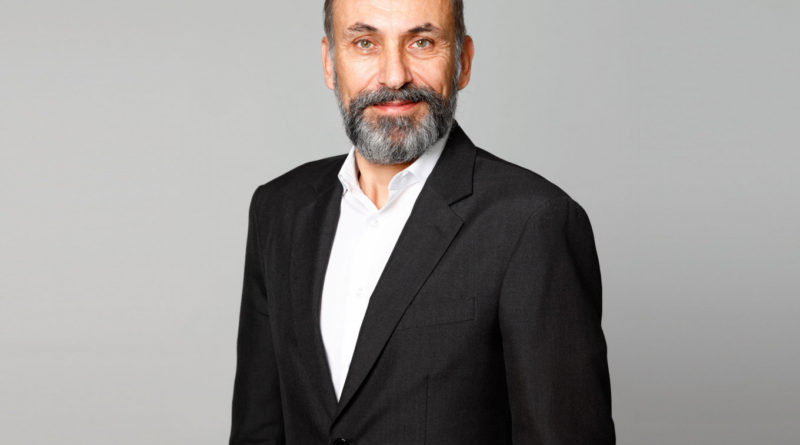OPINION -INTERVIEW | United for water: How collective action can mitigate the global water crisis
Laurent Boissier, CEO of Danone
Indonesia
The Jakarta Post


W ater is more than just a resource, it is the lifeblood of our planet, supporting human health, economic growth and environmental sustainability.
It plays a critical role in every aspect of our lives, and yet, we take it for granted.
Approximately 4 billion people, which is almost two-thirds of the world’s population, experience severe water scarcity for at least one month each year.
Additionally, over 2 billion people live in countries where water supply is inadequate.
Furthermore, it is projected that half of the world’s population could be living in areas facing water scarcity as early as 2025.
This looming crisis will not only raise humanitarian concerns but also pose significant economic risks as water is essential for economic growth.
According to the World Bank, water scarcity could reduce global GDP by up to 6 percent by the year 2050 due to water-related losses in agriculture, health, income, and prosperity.

….
Ranked as the world’s third-most disaster-prone country, Indonesia faces a constant threat from water-related catastrophes like floods, landslides and severe weather.
Alarmingly, nearly 70 percent of household drinking water sources in Indonesia are contaminated with fecal bacteria, rendering them unsafe for consumption and contributing to the risk of stunting in children.
Comprehensive and inclusive water and sanitation measures are crucial to increasing the country’s GDP by 1.2 percent in 2045.
If these challenges remain unaddressed, Indonesia’s GDP could be about 7.3 percent lower by 2045, a significant setback from the original target of US$7.3 trillion.
In the face of these looming threats to global water security, unfortunately, we see water as an unlimited resource and take it for granted.
In order to maintain clean water preservation on earth, it is imperative that all stakeholders take concrete steps to accelerate their efforts in water conservation.
As part of Indonesia’s business ecosystem, Danone realizes that the private sector can take a role in water conservation efforts and inspire many parties to collaborate in water conservation efforts.
Indonesia, as the host of the 10th World Water Forum, has a unique opportunity to showcase itself as a leading nation committed to addressing global water challenges.
The stakes are high, it is time for us to finally stop looking the other way and start taking action. By convening diverse stakeholders and fostering discussions on water-related issues,
Indonesia can set an example for effective and sustainable water management worldwide. Cementing its commitment to supporting the Indonesian government’s efforts to address water issues, Danone actively participated in the organization of the 10th World Water Forum in Indonesia.
Through its participation at the forum, Danone specifically urges the private sector to join its efforts in addressing water conservation challenges, which will be among the topics discussed at the World Water Forum 2024, hosted by the World Water Council in Bali on May 18-25.
Danone views the World Water Forum as a crucial chance to establish partnerships across different sectors.
This aligns with Danone’s commitment to actively address global water challenges through collaborative programs and initiatives.

Collective actions to multiply impacts Transboundary collaboration holds the power to address water challenges. By forging strategic partnerships across authorities, NGOs, the private sector, communities, academia and media, we harness collective expertise and resources to enact integrated water resource management. This holistic solution is pivotal in securing sustainable access to water of sufficient quantity and quality, ensuring its continuous availability to support livelihoods, human well-being and socio-economic development, thus fostering water security and shared prosperity. In his welcome messages on the Forum’s official website, President Joko “Jokowi” Widodo also reiterated the importance of collaboration in the form of dialogue and partnerships among all stakeholders and countries to ensure effective and integrated water resources management for everyone’s benefit and welfare. Collaborative action, underpinned by robust water governance and financial mechanisms, is imperative to amplify the impact of solutions, such as those implemented by Danone in our daily operations.
At Danone Indonesia, we collaborate with local communities near the watershed where we operate, known as watershed forums, to safeguard water sources and the ecosystems integrated from the upstream until the downstream. We have engaged in multi-stakeholder collaborations in our operational sites in Indonesia, including in seven watershed management areas in Indonesia, Upstream Cisadane, Cicatih and Cibeleng Watershed, West Java; Pusur Watershed, Central Java; Rejoso, and Pandaan Watershed, East Java; and Ayung Watershed, Bali. Moreover, Danone is also involving watershed forums to introduce green financing in the scheme of payment for environmental services (PES).

Green financing, innovations, good governance for water resources management
The combination of green finance, innovative technologies and good governance creates a powerful catalyst for achieving water sustainability goals. When capital is funneled into innovative projects, the impact can be transformative and inclusive. Green finance provides the necessary resources for innovation, enabling the development and deployment of advanced water technologies. Innovations, in turn, provide new methods for improving water efficiency and sustainability. Good governance ensures that these initiatives are managed responsibly, with a focus on equitable access and environmental protection.
To bolster our green financing efforts, Danone Indonesia has previously collaborated with Water.org, a global non-profit organization, to develop the Water Credit Program, which encourages microfinance institutions to develop innovations to expand access to drinking water and sanitation. As of present, our various initiatives in providing access to clean water have reached over 500,000 people. This project aligns with our commitment to uphold the Danone Water Policy, which aims to provide safe drinking water to vulnerable people and communities.
Danone aims to deploy the “4R” strategy (reduce, reuse, recycle and reclaim) in all its production sites and implement watershed preservation and restoration plans in highly water-stressed areas where we operate. In 2023, we have made significant strides in managing our water footprint. We are seeing tangible progress in our sustainable water management, with 95 percent of our facilities implementing a 4R approach and 53 percent of our imperiled watersheds having a restoration plan.

Expanding knowledge of water
As part of basic human rights, access to clean water and sanitation is included in the United Nations’ 17 Sustainable Development Goals (SDGs), underscoring the importance of water. To achieve this, water education will play a key role in ensuring water security and promoting shared prosperity.
Fostering public education and dialogue on water management should also help all stakeholders, particularly policymakers, to effectively address water-related challenges. We believe that water education in schools should go beyond building positive lifelong behavior.
To address water challenges, Danone Indonesia joins hands with partners. One of which is by initiating the “Pahlawan Cilik Bijak Air” (Waterwise Little Heroes) education module with technology-based online learning platform Sekolahmu and the University of Indonesia’s Environmental Engineering Faculty to help elementary school students manage their water usage wisely from an early age. This critical thinking and problem-solving toolkit empowers the students to become agents of change for a more sustainable future.
Making a measurable impact is our priority. By focusing our efforts on driving water footprint reduction across our value chains, we aim to achieve a positive water impact where we return more water than we use in production, and benefit both nature and communities. These initiatives directly support the UN SDGs, increasing water access and contributing to a collective effort. By connecting these areas, we are building a water-secure future, one where efficiency reigns, innovation leads the way and strong governance ensures accountability and long-term sustainability.
In the broader scope of global water conservation, it is clear that the efforts of a single company are not adequate. We need collective global actions and support to truly make a difference and effectively reach our objectives. Thus, we encourage everyone to actively participate in conserving water and improving its quality for the betterment of people’s lives and the environment. Source: Danone
.
Jakarta Mon, May 20, 2024









